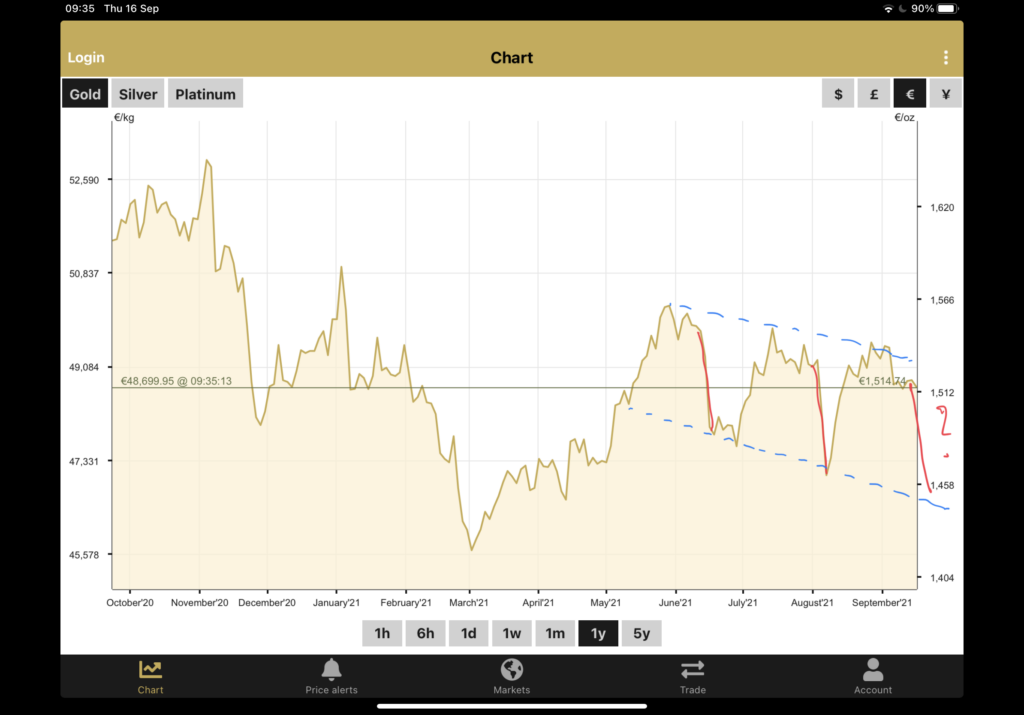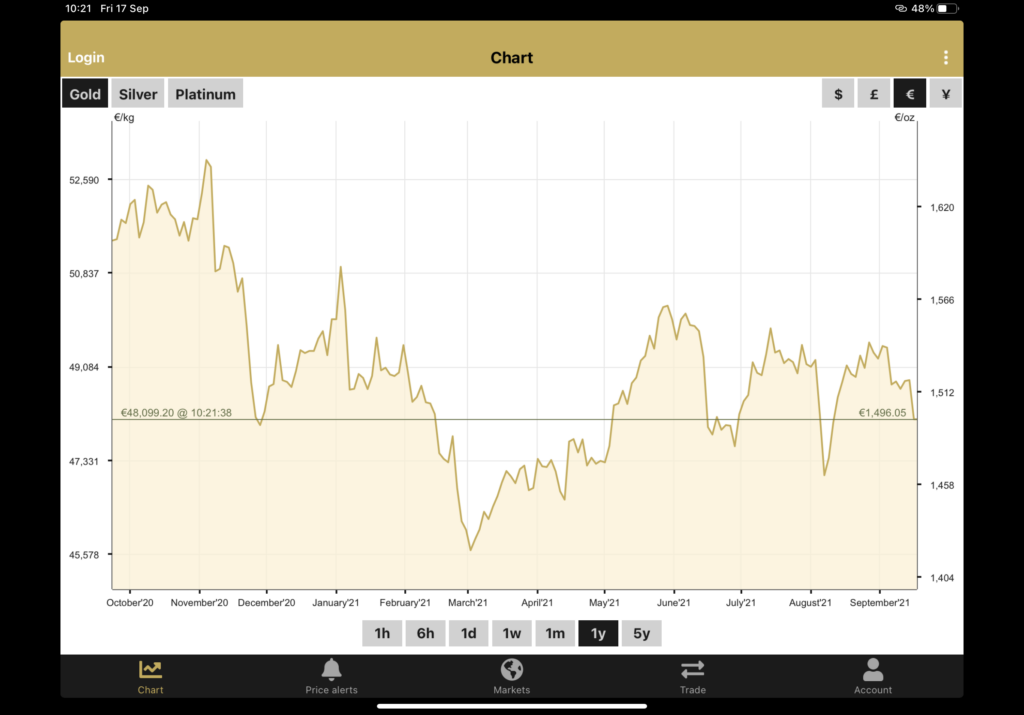I wrote on this topic before, and apparently I have to do it again, because reasons.
Whenever I think about why Bitcoin, or some other crypto-currency, isn’t and can’t be money, its advocates think I don’t understand crypto (going under assumption that it’s impossible to understand their position and still disagree with it, which is the essence of narcissism, but I digress), and I come out of it with an even more clear impression that they don’t understand money.
This isn’t really uncommon or strange, because I don’t think anyone educated under the Keynesian paradigm understands money, either, and this includes the heads of central banks worldwide. So, let me postulate a few things about money.
Money is a non-perishable, fungible physical commodity that is readily accepted in every trade, and continues to function as such regardless of circumstances.
According to this definition, neither Bitcoin nor any other crypto-currency meets the definition of money. They are non-perishable, they are fungible (meaning, you can divide it into smaller fractions, or unite smaller fractions into a larger unit, without loss of value), but they are not a commodity. They don’t exist outside of computers, and in fact they don’t exist or have any value outside the Internet, and a very complex superstructure of servers. It’s often mentioned, in favour of Bitcoin, that it has a reduced supply, but reduced supply doesn’t on its own make something meet the definition of money. Even the fact that it is accepted and used for payment at some places doesn’t make it money. My father accepted humanitarian aid as payment during the independence war in Croatia when people didn’t have money, but that doesn’t make pop tarts and potato chips money. They are perishable goods that can be accepted in barter in limited circumstances, the same as Bitcoin. You can use Pokemon cards in barter as well, but that doesn’t make them money.
However, according to the definition, US Dollar isn’t money either; it’s a state-enforced financial instrument. US Dollar used to meet the definition of money, when paper currency was merely a “pointer” to physical metal. The physical metal Dollar was money. It was a gold or silver alloy, that was readily acceptable in trade everywhere, derived value from its precious metal content, was non-perishable (meaning it would exist and retain its value thousands of years after the country that issued it was gone and forgotten, the way Roman or Austria-Hungary coins do now). Paper Dollar was initially pointer to money, and was accepted in trade under the assumption that it can be readily traded in for its nominal value in gold or silver.
If a country that issued it ceases to exist, money must retain its value and utility in trade. If electricity ceases to exist (in case of a Carrington event or a nuclear war), money must retain its value and utility in trade. If Internet stops working permanently, money must retain its value and utility in trade. The only way money can be allowed to lose its value and utility is an extinction level event that wipes mankind out.
It is perfectly fine if pointers to money are used in daily trade. That is actually preferable, and solves so many problems it was initially introduced as a solution to money transfers by the Templars during the crusades. A note that can be redeemed in gold is perfectly fine in most cases. A digital crypto-token that can be redeemed in gold is perfectly fine, in most cases, and elegantly solves the problem of international transfers and trade. “In loco London unallocated” exists as a form of clearing today, and is a first-order pointer to actual money. But Dollar, Euro or other currencies are not. They are used due to a combination of habit, ignorance and a threat of force. What people actually think is that Dollars are backed by gold somewhere; it is not common knowledge that such backing was removed half a century ago, “temporarily, until things settle”.
Basically, if you want to see if something is money, imagine the state that issued it went down (like the Western Roman Empire, Byzantine empire, Third Reich, Kingdom of Yugoslavia, Socialist Yugoslavia, Imperial China and so on), imagine the 19th century conditions – no electricity and no Internet – and see if you can buy a can of beans, a cow or a house with it, anywhere in the world. If you can’t, it’s not money – and don’t dismiss the described circumstances out of hand, because I lived for decades in the times without the Internet, and weeks in a row under power outages and occasionally under artillery shelling and air raids. If money stops working under those conditions, you are just asking to get fucked.
I live in Croatia. Here, I’ve seen money and paper currency from the Austria-Hungary empire, from the Kingdom of Yugoslavia, from NDH (fascist-collaborationist entity of WW2), Socialist Yugoslavia, and Croatia (Dinar and later Kuna). Basically, expected lifespan of a country here is from 20 to 50 years, and after it goes bust you can basically wipe your butt with its paper money. However, guess what? Gold and silver coins made in Austria-Hungary still trade on the market and you can exchange them for whichever currency. Gold and silver coins from the Kingdom of Yugoslavia are still worth their weight in gold or silver, plus the numismatic premium. If you manage to dig out a Byzantine solidus, you can sell it for its gold content plus the numismatic premium. However, if you by some chance have a paper that is “redeemable in gold by the central bank of the Kingdom of Yugoslavia”, it’s worth exactly its paper content.
The moment the Internet is wiped out, there is no more crypto, and if you count on crypto as money or store of value, you will be wiped out. The “issuing state” of Crypto is the Internet. As soon as the issuing state goes bust, all of its financial derivatives become instantly worthless. Anything that can fall back on its metal content, however, is perfectly fine, and all the denarii and solidi saved by your ancestors are perfectly good money today.
So, basically, the crypto advocates can dismiss my arguments, but when, not if, crypto and fiat currencies are wiped out, don’t expect me to feel for you. Anyone who speculates with crypto or other paper derivatives, and doesn’t have at least a third of their total net worth in precious metals is just asking to get fucked.
The deception about Bitcoin is that it is portrayed as a coin – usually a gold coin – and it isn’t a coin of any kind. It’s a piece of data. It exists only within the context of the Internet, computers and the power grid. Outside of that, it is absolutely worthless.
An Austro-Hungarian golden ducat also existed within the context of an Empire, but when this empire dissolved, everybody holding their wealth in ducats was perfectly fine, because its value was derived from what it is – the metal alloy and the mass – and not what it means. Wipe all the context from a gold coin and you have its weight in gold. Wipe all the context from a crypto or fiat currency and you have toilet paper, at best.


